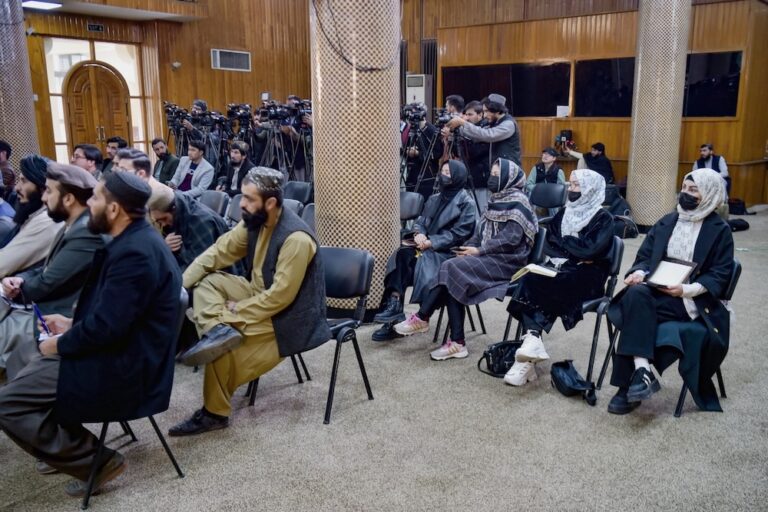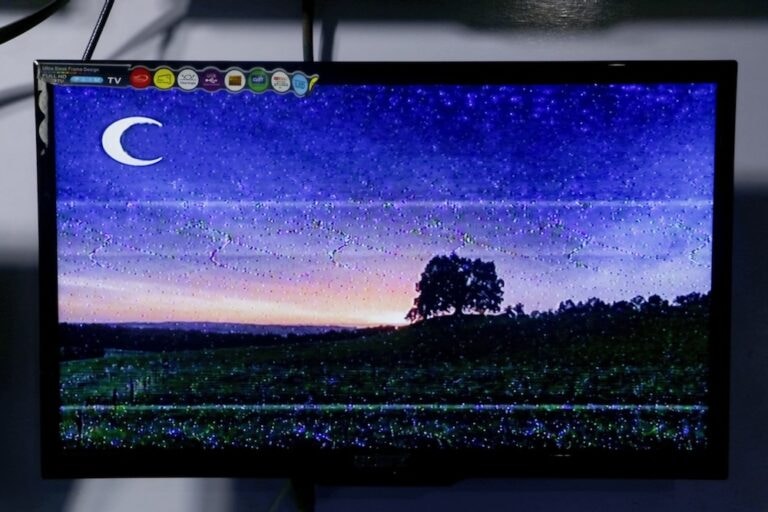(WiPC/IFEX) – WiPC has learned that the Dar-ul-lfta, the council of religious scholars within the Supreme Court, has issued a fatwa against Ali Mohaqiq Nasab, chief editor of the monthly magazine “Haqoq-e-Zan” (“Women’s Rights”), ruling that he had contradicted verses of the Koran in his articles. Under Islamic or Shariah law, the punishment for apostasy […]
(WiPC/IFEX) – WiPC has learned that the Dar-ul-lfta, the council of religious scholars within the Supreme Court, has issued a fatwa against Ali Mohaqiq Nasab, chief editor of the monthly magazine “Haqoq-e-Zan” (“Women’s Rights”), ruling that he had contradicted verses of the Koran in his articles. Under Islamic or Shariah law, the punishment for apostasy includes the death penalty. Nasab was arrested on 1 October 2005 and sentenced to two years’ imprisonment for blasphemy, for publishing allegedly anti-Islamic articles in his magazine. International PEN considers Nasab’s detention a violation of Article 19 of the United Nations Universal Declaration of Human Rights, and is calling for his immediate and unconditional release.
According to PEN’s information, Nasab was arrested under the press law on 1 October 2005 for articles published in his magazine that were deemed to be “un-Islamic” and “insulting to Islam” by local clerics. Nasab, aged 47, is a liberal Shiite cleric who returned to his native Afghanistan two years ago after living in exile in Iran for many years. He reportedly challenged conservative Islamic beliefs in his magazine: the articles for which he is charged are believed to have questioned the severity of punishments under Shariah law for adultery, theft and converting from Islam to another religion, and stated that a woman’s testimony should be given the same weight by the courts as a man’s, not half as much.
His arrest is believed to have resulted from high level pressure from leading religious figures, including an advisor to the president, in violation of legislation which stipulates that journalists can only be detained after a government-appointed media commission has considered their case. The commission met on 18 October to discuss Nasab’s case, and concluded that he had not deliberately insulted Islam in his articles and that therefore there was nothing to support the charge of blasphemy.
However, he was convicted by a Kabul court on 22 October and sentenced to two years in prison. He did not have a lawyer to defend him. The head of the media commission issued a statement declaring Nasab’s arrest, trial and imprisonment to be illegal and calling for his release. The minister of culture has also protested his detention. However, it is feared that the prosecution, under pressure from conservative religious figures, will now press for a harsher sentence against Nasab. The case is under appeal.
Nasab is being held in the Kabul Province jail. There have been reports that his health has seriously deteriorated since his detention, and there are fears for his safety as a result of the fatwa.


